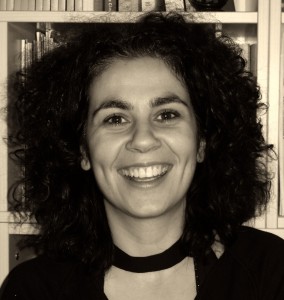TUSCALOOSA, Ala. — During the spring 2011 semester, The University of Alabama will host a series of events highlighting the connections between Greece and other parts of the world, including Alabama.
These events, called the Alabama Greece Initiative, will feature UA faculty along with two faculty members from Aristotle University in Thessaloniki, Greece.
“A global perspective is key to a quality university education, and we are increasing each semester the international experiences offered to students,” says Dr. Robert F. Olin, dean of the College of Arts and Sciences. “The Alabama Greece Initiative, presented by the Asian Studies program, offers our students a semester-long and multifaceted look at this complex country and culture and how it influences us. This is an invaluable and stimulating series, and I recommend it highly to all UA students.”

Dr. Angeliki Ziaka of Aristotle University will visit UA from Monday, Feb. 21, to Friday, Feb. 25, to meet and converse with faculty and students across the College of Arts and Sciences. During her stay, she will present a public lecture titled “The Muslim Presence in Greece,” at 3:30 p.m. Wednesday, Feb. 23, in Gorgas Library Room 205.
Ziaka is a history of religions lecturer at Aristotle University and holds a doctorate from the Marc Bloch University of Strasbourg. She specializes in the study of Islam and the Arabic/Islamic civilization as well as inter-religious dialog, which she extensively researched at Strasbourg University, the Pontifical Institute of Arabic and Islamic Studies and the University of Amman.
Her research interests focus on Muslim theology and history as well as the social, religious and political dimensions of Islam in the Middle East. Her comprehensive study of Shi’ism also led to the publication of her book on the social and political dimensions of Shi’ism in 2004.
She also has published books on inter-religious dialogue (2010), on byzantine and post-byzantine literature and Islam (2010) and on Mahdi (the eschatological savior) and Messianic movements in Islam (2010).
Her lecture will address the experiences and differences of two groups of Muslims residing in Greece: the Muslims of Greek citizenship, who have lived permanently in Western Thrace since the 15th century — when the territory came under Ottoman domination — and make up approximately 2 percent of the Greek population, what is known locally as the so-called “old” Islam; and the Muslim immigrants who have more recently moved to Greece from Muslim countries, so-called “new” or “migrant” Islam.
To better understand the status of these two different groups of Muslims in Greece, Ziaka will argue that we need a historical, social and juridical overview that can study the Muslim presence in Greece as a phenomenon related to migration, an approach that can lead to solutions relevant to the social problems that often result from the movement of peoples across regions and the globe.
The second faculty member from Aristotle University, Dr. Danae Stefanou, will speak on musical and mixed-media group improvisation in Greece at 3:30 p.m. Thursday, April 21, in Gorgas Library room 205.
A concert featuring Stefanou on piano with Dr. Andrew Raffo Dewar, assistant professor in New College and music on soprano saxophone, at 7:30 p.m Thursday, April 21, in Moody Recital Hall.
On Friday, April 1, UA faculty will hold a symposium on Greece and Global Culture from 9 a.m. to 1 p.m. in Gorgas Library Room 205. This conference will comprise four panels featuring UA faculty (as presenters and respondents) from disciplines represented in the College of Arts and Sciences.
In addition to these events, two contemporary Greek films will be shown: “Brides” (2005) on Wednesday, March 30, and “Touch of Spice” (2003) on Thursday, March 31. Both will be at 5 p.m. in room 205 of Smith Hall.
The program is supported by UA’s College of Arts and Sciences, Asian Studies, the department of art and art history, the department of gender and race studies, the department of modern languages and classics, the department of religious studies, the Honors College, New College, the Creative Campus Initiative, the Diversity Committee of the College of Arts and Sciences and University Libraries
UA’s College of Arts and Sciences is the University’s largest division and the largest liberal arts college in the state. Students from the College have won numerous national awards including Rhodes Scholarships, Goldwater Scholarships and memberships on the USA Today Academic All American Team.
Contact
Richard LeComte, media relations, rllecomte@ur.ua.edu, 205/348-3782
Source
Dr. Steven W. Ramey, 205/348-4218, steven.ramey@ua.edu